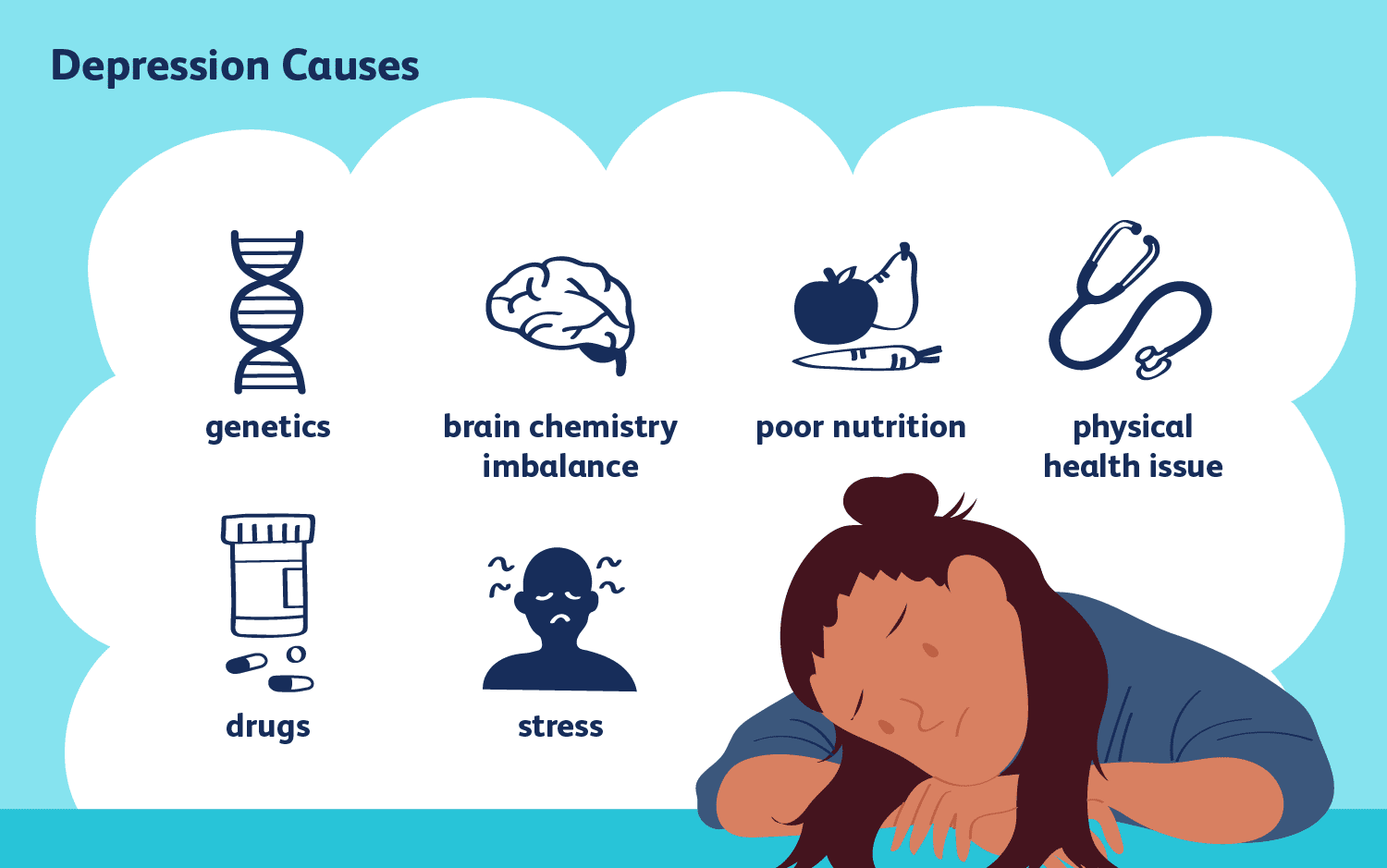
In the fast-paced, digitally connected world we live in today, mental health issues, especially depression, have become more prevalent than ever. Despite growing awareness, depression often remains misunderstood, overlooked, or even ignored—turning it into a silent struggle for millions worldwide.
Depression:
Depression is a common but serious mental health disorder that affects how you feel, think, and act. Unlike occasional sadness or feeling "blue," depression is persistent and can interfere significantly with daily life, relationships, and overall well-being.
How Depression Looks and Feels:
Depression can be invisible on the outside. A person may smile, go to work, and interact with others, but internally, they might be battling feelings of emptiness, hopelessness, or despair. It affects people of all ages, backgrounds, and professions.
Signs and Symptoms of Depression:
Symptoms can vary from person to person, but common signs include:
- Persistent sadness, anxiety, or “empty” mood
- Loss of interest or pleasure in hobbies and activities
- Fatigue and decreased energy
- Difficulty concentrating or making decisions
- Changes in sleep patterns (insomnia or oversleeping)
- Appetite or weight changes
- Feelings of guilt, worthlessness, or helplessness
- Thoughts of death or suicide
If these symptoms persist for more than two weeks, it’s important to seek professional help.
Causes and Risk Factors:
Depression doesn’t have a single cause. It can stem from a combination of:
- Biological factors: Chemical imbalances in the brain
- Genetic predisposition: Family history of depression
- Traumatic life events: Abuse, loss, or major life changes
- Chronic medical conditions or substance abuse
- Stress from work, school, or relationships
Real-Life Example: A Hidden Struggle:
Mark, a 35-year-old software developer, was always seen as cheerful and successful. He had a stable job, a supportive family, and a wide social circle. However, he began feeling overwhelmed and emotionally numb. He stopped enjoying his favorite activities and started withdrawing from friends. Eventually, Mark was diagnosed with major depressive disorder. Through therapy and medication, he gradually began to recover and now advocates for mental health awareness in the tech industry.
Case History:
A 22-year-old college student, Sarah, was referred to counseling services after she reported thoughts of self-harm and poor academic performance. She had lost her father the previous year and struggled with grief and isolation. After a psychological evaluation, she was diagnosed with persistent depressive disorder. Her treatment plan included cognitive behavioral therapy (CBT) and a low dose of SSRI antidepressants. Over a year of regular sessions and support, Sarah showed significant improvement and resumed her studies with a positive outlook.
Modern Treatments for Depression:
1. Psychotherapy (Talk Therapy):
Cognitive Behavioral Therapy (CBT), Interpersonal Therapy (IPT), and other forms of counseling help patients identify negative thought patterns and develop coping strategies.
2. Medications:
Antidepressants, such as SSRIs (e.g., fluoxetine, sertraline) and SNRIs, help balance brain chemicals. Medication should be taken only under medical supervision.
3. Lifestyle Changes:
- Regular physical activity
- A healthy, balanced diet
- Consistent sleep routines
- Reducing alcohol and drug use
- Practicing mindfulness or meditation
4. Support Groups:
Sharing experiences in group therapy or peer support groups can help individuals feel less alone and more understood.
5. Digital and Remote Therapy:
In the age of technology, online counseling platforms and mental health apps are providing accessible mental health care globally.
6. Advanced Treatments:
In severe or treatment-resistant cases, options like electroconvulsive therapy (ECT) or transcranial magnetic stimulation (TMS) may be used.
Conclusion:
Depression is a real, painful, yet treatable condition. It's crucial to recognize the signs and seek help early. With the right combination of support, therapy, and self-care, individuals can recover and lead fulfilling lives. Our society must continue to break the stigma and build a more empathetic, informed approach to mental health.








No comments:
Post a Comment